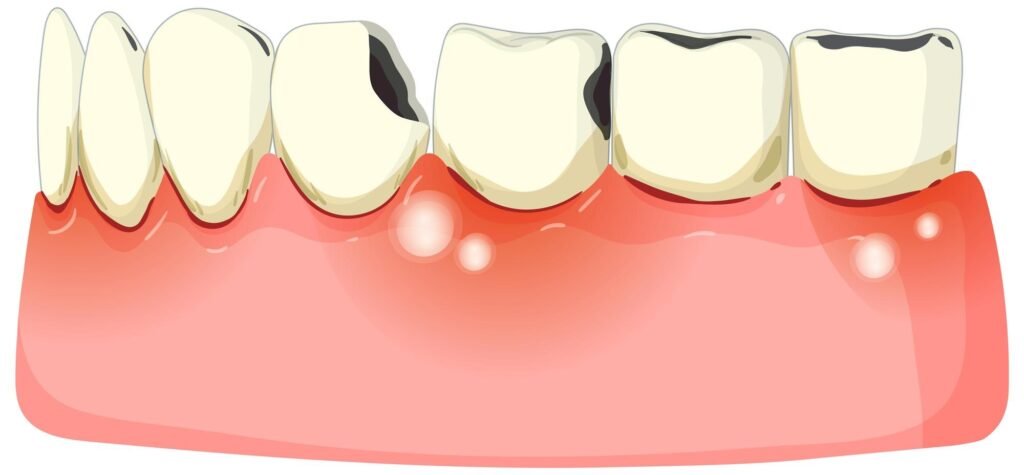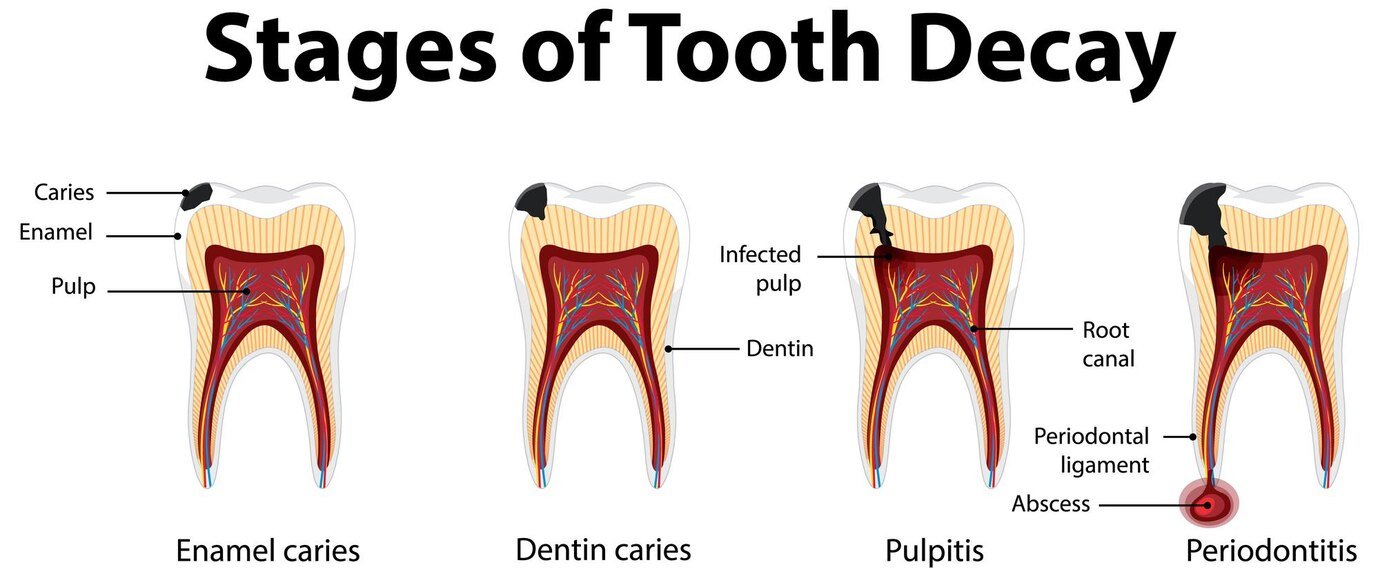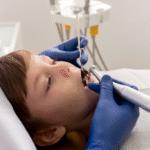Saturday - Wednesday: 9 AM - 10 PM
Thursday: 9 AM - 9 PM
Friday: Closed

March 23, 2025
What Is The Best Dental Treatment For Gum Disease?
Our mouth is the home of a lot of bacteria. It has good and harmful bacteria. The good bacteria can be found in the saliva that helps in the digestion of the food, while the harmful bacteria are responsible for a lot of diseases. The food that is stuck in between your teeth, sometimes even after brushing and flossing, gives birth to this bad bacteria, and this bacteria can lead to a lot of infections in the mouth and gums, from ulcers to periodontitis.
Depending on the type of infection or disease that you have, there are several ways that you can get treated. There are home remedies for simple infections that work wonders, while there are a few infections that need you to go visit the dentist to get them cured. With this, you will understand the different gum infections, ranging from mild (can be treated at home) to severe (needs surgical treatment).
Mild Gum Infections – Gingivitis

Infections like Gingivitis are very easy to treat with a few simple remedies. If the Gingivitis is in its early stages, you can easily cure it with a salt-water rinse, which helps promote healing and reduce inflammation. You can also try applying turmeric or aloe vera to the affected area, and the infection will be gone in a few days. Oil pulling and antibacterial mouthwashes destroy the existing germs and stop their growth, helping you get better faster.
Gingivitis is identified by red or swollen gums, bleeding while brushing or flossing, persistent bad breath (halitosis), and mild gum tenderness. There is no pain, only some minimal discomfort that one might experience. If you don’t know what to look for, mild gingivitis is sometimes not even noticed.
Moderate Gum Infections – Mild Periodontitis or Advanced Gingivitis
If gingivitis is not treated at its initial level, then it can progress into mild periodontitis. Periodontitis is identifiable because of receding gum line, or where the gum line is pulling back from where it used to be, or swollen gums in certain cases. Tartar build-up near the gumline that doesn’t go away even after brushing, and small pockets that weren’t there before form between the gums and teeth. Because of the receding or swollen gums, the gums experience increased sensitivity that could cause bleeding at times.
Mild to moderate periodontitis can be treated with non-surgical procedures. Getting your teeth professionally cleaned can help remove the tartar build-up and plaque from near the gum areas. You can try scaling and root planing, which helps the infection from spreading and affecting the other gums. You can also try laser therapy, which reduces the growth of bacteria and promotes gum healing. Once done, all these procedures leave the gums sore for up to 24 hours, after which your gums return to their normal health. However, if you don’t want to try these procedures, there are certain antibiotics that you can get that help control the bacteria and promote healing in the infected areas.
Severe Gum Infections – Advanced Periodontitis

If periodontitis is not treated in its early stages, it can escalate to advanced periodontitis, which could cause people to lose teeth because of how loose the gums or the tooth sockets are. It also causes pus between the gums and teeth and severe pain while chewing. It also causes loss of jaw that is not seen with the naked eye but is visible in X-rays of the mouth.
Advanced periodontitis is not curable without surgery. Gum grafting, where the receding gums are repaired with donor tissue, and bone grafting, where the bone lost because of the infection is rebuilt, are the most used procedures to revive your dental structure after advanced periodontitis. However, other options include guided tissue regeneration, where the bone and gum tissues are regrown surgically, or flap surgery, where the gums are lifted, and the plaque and tartar that is invisible to the naked eye is cleaned, allowing cell and tissue regeneration.
Conclusion
If you experience any of the symptoms mentioned above, it is best to approach a dentist and get your teeth and gums checked. If you notice pus formation or abscess in the gums, experience severe pain or bleeding while eating, or experience persistent bad breath and bleeding even after brushing and flossing, it is pertinent that you get professional help.
These conditions can become dangerous if not treated properly and can cause you to lose all your teeth. Diamond Dental is a reputed dental clinic that has been dealing with these issues and has experience treating them without increasing them. If you need professional medical help regarding Gum Treatments in Kuwait, visit Diamond Dental for safe and promised dental solutions.
Search
Recent Posts
-
Top 10 Benefits of Dental Implants
19, Aug, 2025
-
What Is Tooth Decay? Causes, Symptoms, and Prevention
19, Aug, 2025
Looking for professionals & trusted medical healthcare?
Don't hesitate to contact us.

Contact Us
Get In Touch With Us
© 2024 All Right Reserved














